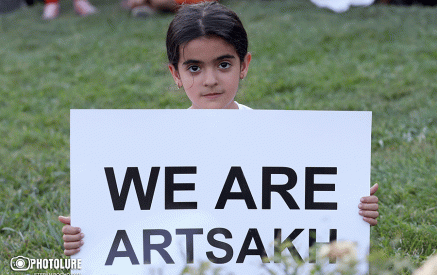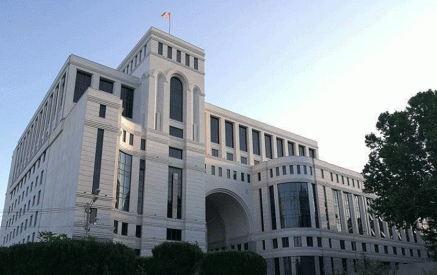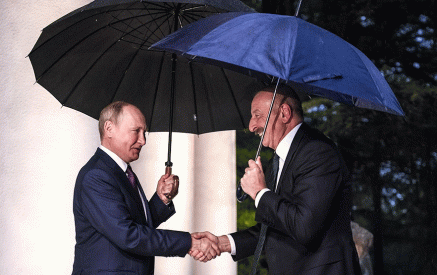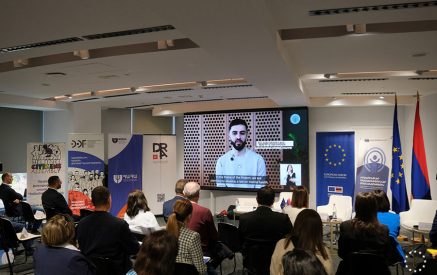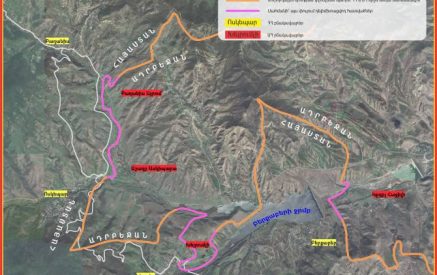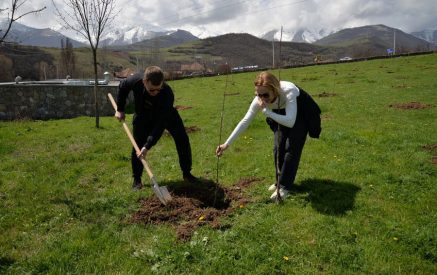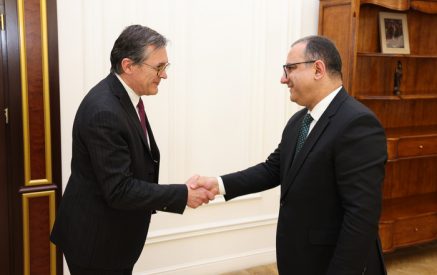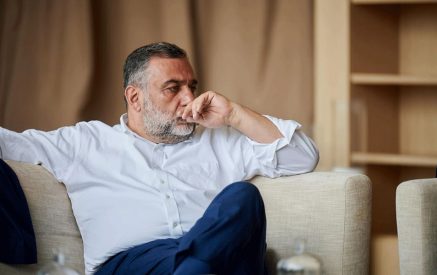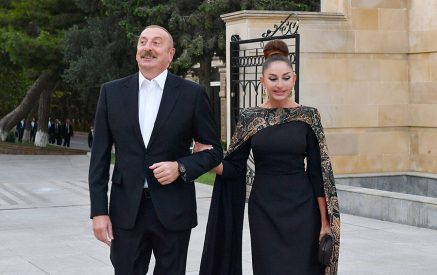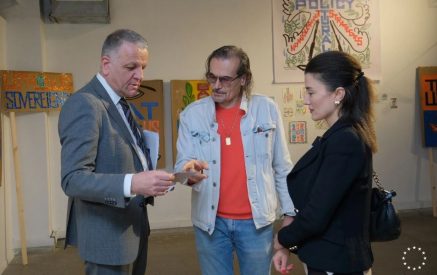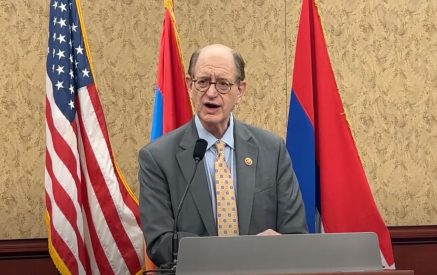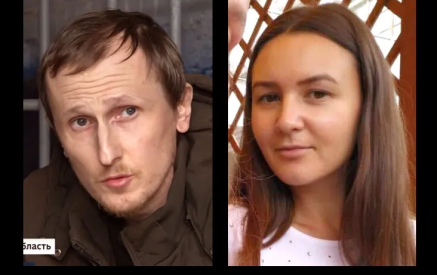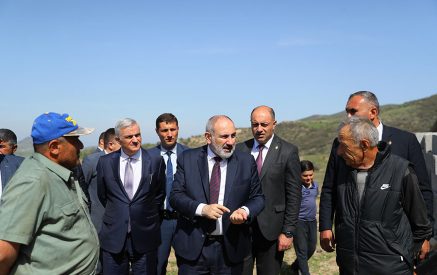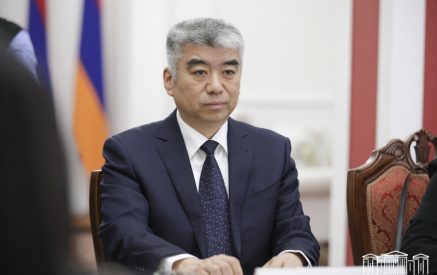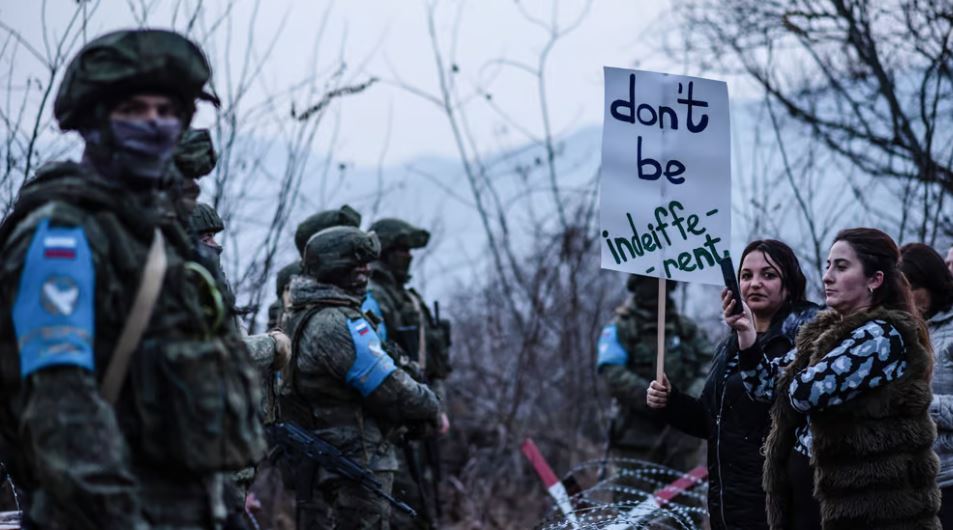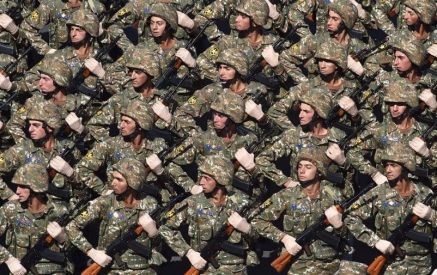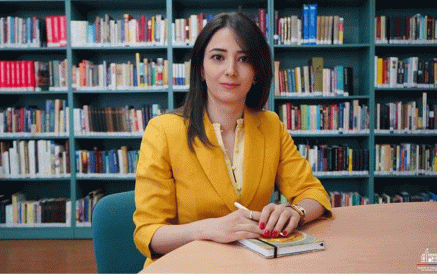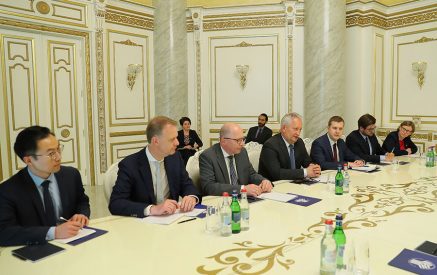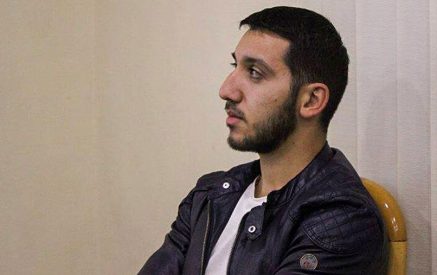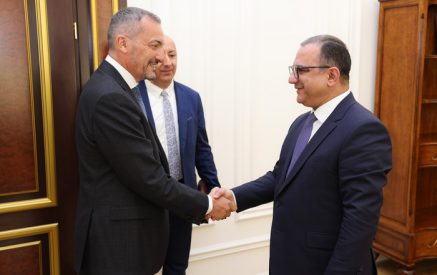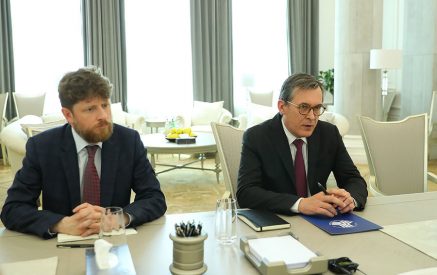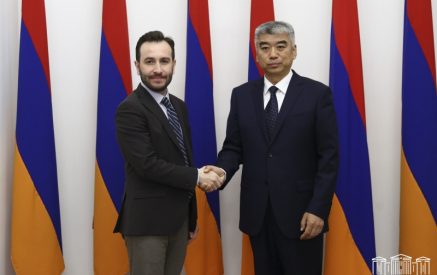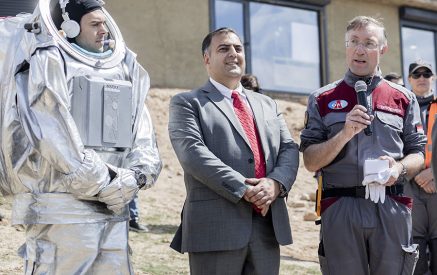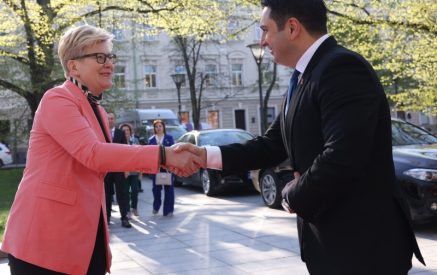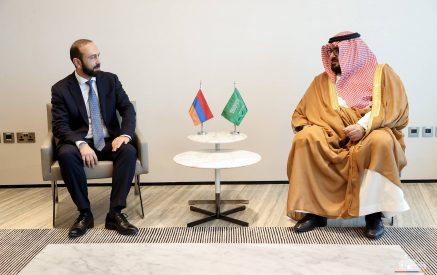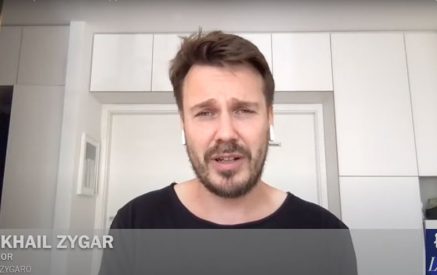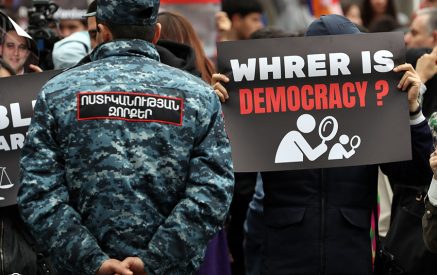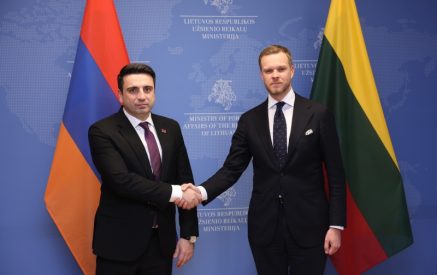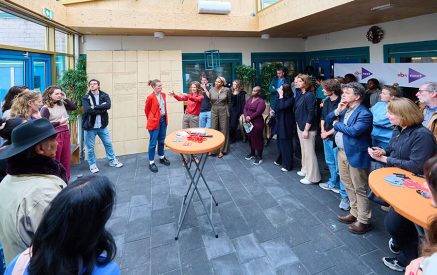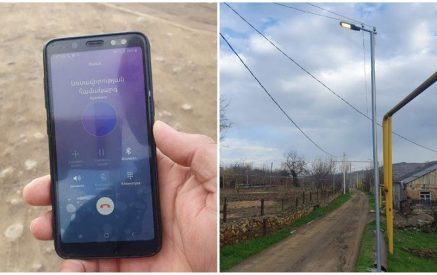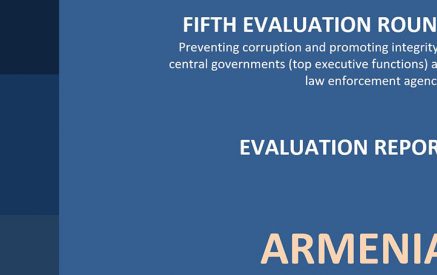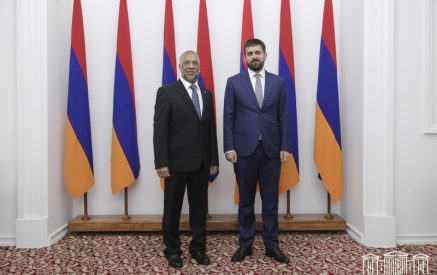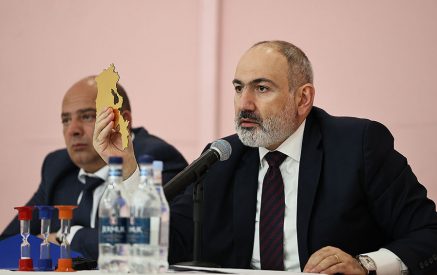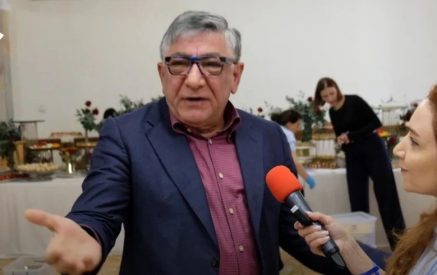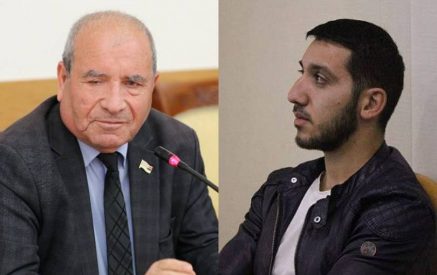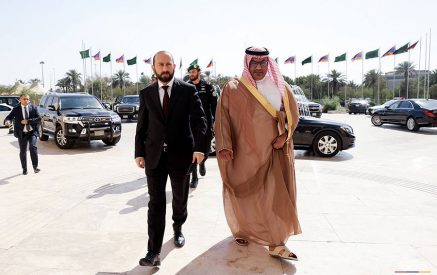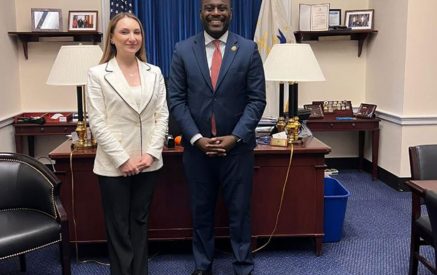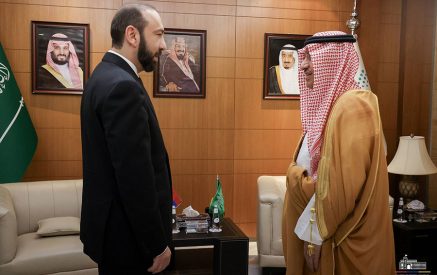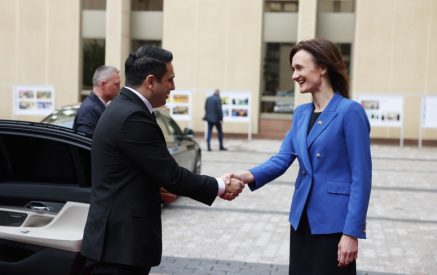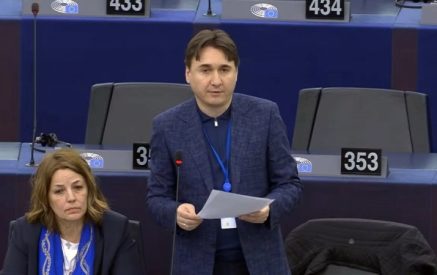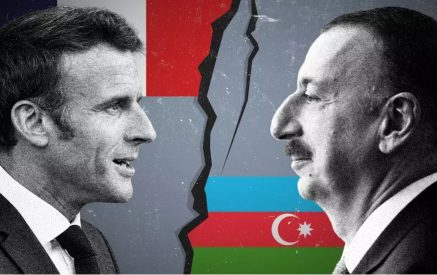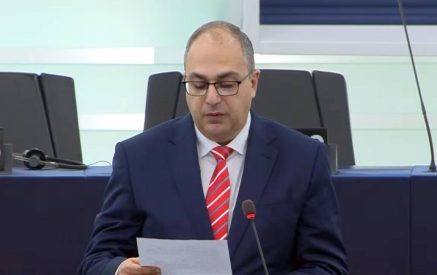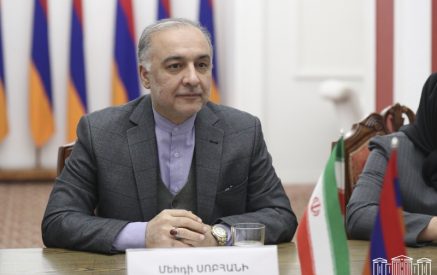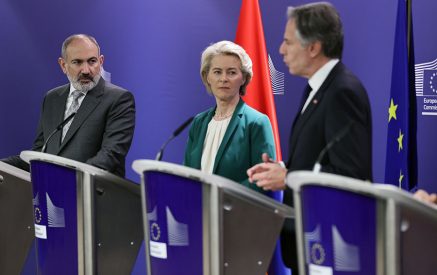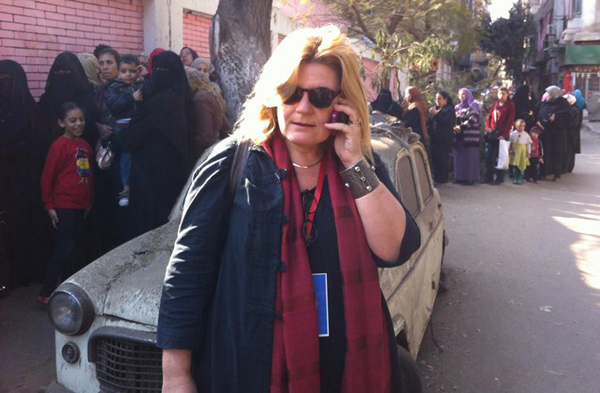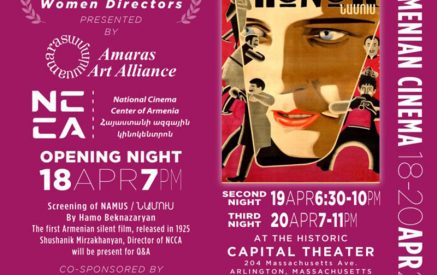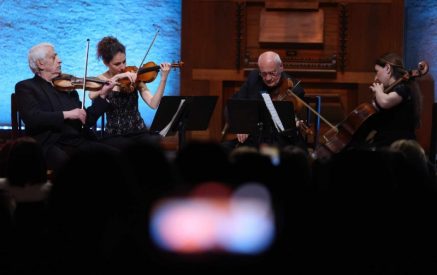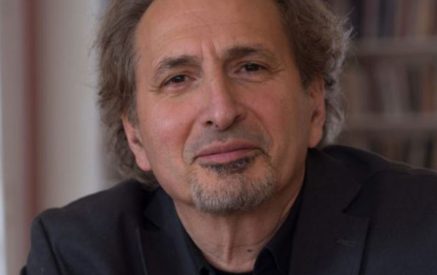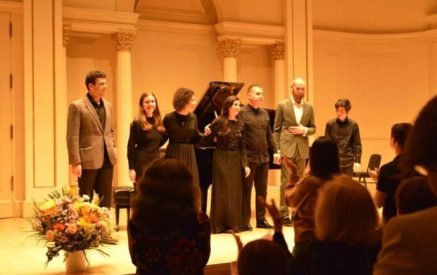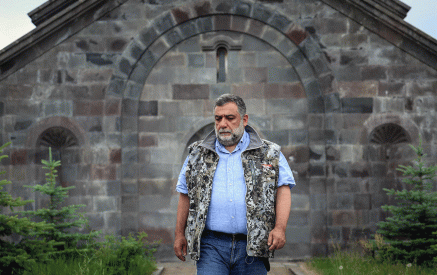On August 22, the well-known Sweden-Armenian documentary filmmaker’s, also the author of dozen films, Suzanne Khardalian’s next film the “Camel” will be shown simultaneously in big and small towns of Sweden. It is a return to the “Arab Spring”, the role of a woman in revolution and in the context of all of this, to the Western media. In the interview to “Aravot” through Skype, the filmmaker said that he had set a goal to refer to the events in the Middle East from a new perspective. The work of a radio-journalist covering the Middle East events underlies the practice, to which Khardalian has followed in the course of three years. The filmmaker is convinced that the journalist having one-million audience is capable to “educate” the public by daily broadcasts and to create a respective opinion about the “Arab Spring”.
Suzanne Khardalian notes that women’s participation in the revolution had become the nail of this journalist woman’s work. Our interlocutor states that the sexual violence in the Arab world is used as a political tool to keep women away from politics. She is convinced that women are important role-players in revolutions, and, unfortunately, women are affected by the failure of the revolution, or in this case, the bitter fruits of turning the “Arab Spring” into “deep winter”. We were inquired to know why the film is entitled “Camel”.
It turned out that it is the nickname of the main character, but as said by the filmmaker, it has also a symbolic meaning. “First, he is familiar among his circles as a camel, it is his nickname, secondly, the camel reflects the Arab people’s patience, endurance, steadfastness, the main hardship of hard years, hopes… I must say that as a woman is not easy to work in the Middle East, it is hard to take you serious, to take interviews, the state officials switch off the recorder, there is an attitude of shame. Also, at the same time, it is easier to enter into the society as a woman, to enter into people’s houses, to learn things, about which they do not talk outside but they will speak in the house.” The poster of the film “Camel”. We asked the author of the film when it will be available to the Armenian audience. She said that perhaps she would apply to the “Golden Apricot”, or they there are interested people and make an offer, the film will be surely brought to Armenia.
On the other hand, Suzanne Khardalian expresses amazement, “If the theme of the film is Armenian, many Armenians are more interested, they contact and wish to have the film, but when the films are about other subjects, there is no response from the Armenians at all. We should think that what is happening in the Middle East should also have huge implications for Armenia, the response of the “Arab Spring” is currently seen in Iraq, all of this is not far away from us… I hope that the Armenian man would show a similar interest in the film.” We asked Suzanne Khardalian whether she is not intended to shoot a movie about Islamicized Armenians, especially when recently, people have begun talking much about their roots.
The artist said that she really has such an idea, simply she is waiting for the theme to develop. “I already have it in my mind, but I will not work quickly, I must wait for the material to develop first, to see the opportunities of shooting the film, because it is not a reportage, I do not work in the formal of reportage, there should be a period of time, one year, two years. The most important thing is that how we as ten thousands of Armenians should treat or would treat these people. Should we, this time, decide to meet them with open arms and with all its consequences? In the history, the Armenian man, when changing something in his identity, the majority are ready to push them out. It makes no difference for me what religion the Armenian man has. I ask you, if Armenians decide to be Buddhist, would they be treated badly? Because we would never treat badly, for example, the Armenians in California that are connected to different directions of Christianity. So, why don’t we accept the Islamized Armenians?”
Going back to the Middle East woman, the author of the film says that they are brave, motivated, did not even step back after the public violence of the movements and tortures, even Islamist women have gone against many principles despite the religious embargos. And not all of them were avant-gardists, they had read Sartre, simply these women wanted to change soimething.
To our observation that in contrast to the documentary film, there is more shine and luster in case of a feature film, luxury cars and red carpet, Suzanne Khardalian responded, “The documentary film has no lust, which the feature film has, and then, I am Suzanne Khardalian and not Kim Kardashian, I cannot compete with her or wonderful actors. This is a matter of education, you know mostly documentary films are watched, for example, in our country, people go to the cinema hall to watch documentary films, this is a long-term work that the Ministry of Culture should conduct to make the documentary the face of our culture. There are no red carpets, but I do not have a need for red carpets. With my films I say what I would do if I were an activist and go out to the street. In my understanding, thus, I would be able to tell what I want people to know about the situation in the Middle East. The film will become the way to express my activism.
In fact, the film is the major political tool. Look at how many films are taken about the World War II to influence on the public. So far, people are not watching feature films during the pre-election campaign, but documentary.” We asked our interlocutor to tell interesting episodes that has happened when shooting the film “Camel”. “It was a very hard work, sometimes we pretended to be tourists, sometimes people shooting a travel movie, Mr. and Mrs. that has come to tour. Once, we were shooting an episode in the square when the crows attacked us, on the same day 3 journalist was arrested, beaten, they took away our camera, we were constantly in front of the anger by the mass, a little thing might incite them,” told the filmmaker. See says that people in the Middle East see a man in the foreigner who serves for America or Israel, they were furious when a stranger was interested in their own internal problems. And the unhappiest moment was that they were shooting the harsh realities that could not be interfered with or prevented. One of them was the Islamists campaign launched against Alexandria Copts, they were burning down their houses, wounding, and they were powerless to help. “It was sad that you cannot help, change something at that moment, when you face a weapon, a crowd consisting of thousand people.”
Gohar HAKOBYAN

